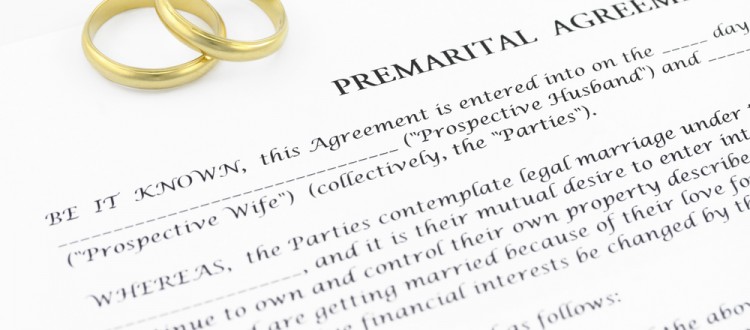Prenups
Congratulations on your engagement!
Your wedding planning may have left out an important piece of the puzzle for setting yourselves up for a successful marriage - consulting with a family law attorney about whether a prenuptial agreement makes sense for your budding family.
A consultation regarding your rights and obligations prior to getting married helps couples think about the future they will be growing together, and what to do to prepare for it.
Prenuptial agreements are not just for people with assets such as businesses, inheritances, and family trusts; they are helpful for making critical decisions on several other issues as well.
What is a prenup?
Prenuptial agreements are contracts that set forth the legal rights of each party and the financial arrangements in the event of divorce or death of one of the parties. The difference between having a prenup and not having a prenup is that with a prenup, you decide your legal rights, and, hopefully, avoid costly litigation and defaulting to the prevailing divorce laws.
If this is your second marriage, you may know the difficulty of a divorce without a prenup all too well. If not, please know that it is valuable to anyone embarking on a marriage to take the time to talk with a family law attorney to decide whether a prenup would be valuable to you to help establish a solid foundation for a healthy marriage.
Some common misconceptions:
- One misconception is that a prenup goes into effect upon signing. Not so! Prenups are conditional and only become effective if you marry. The prenup is null and void if you don’t marry, no matter how long the relationship lasts.
- A second misconception is that if you are presented with a prenup the day of the wedding and sign it just so that the wedding won’t be called off, the prenup is not enforceable. Not so! There is no requirement that a prenup must be signed a certain number of days before the marriage.
- A third misconception is that only very wealthy people need a prenup. Not so! Wealthy individuals tend to seek prenups in greater numbers than those with less assets. However, both parties in a marriage benefit from prenups. Prenups provide transparency about assets and debts, and help proactively avoid potential future financial arguments. Moreover, discussing how you’re going to handle your finances during your marriage, including addressing spending habits and discussing what would be fair should you divorce, facilitates critically important communication.
- A fourth misconception is that you can keep your assets and debts private and not disclose that information to your spouse. Not so! Every prenup must include a full and fair disclosure of current assets and debts, and the parties must specifically waive further disclosure in order for the prenup to be valid.
- A fifth misconception is that without a prenup, assets and debts are split equally, 50/50. Not so! Without a prenup, under Pennsylvania law the distribution of property is done “equitably,” but not necessarily equally. Many factors go into determining what is an equitable distribution, including earnings and earning capacities of the parties and the existence of significant separate property. A prenup saves you from having to start negotiating the distribution of property in the throws of a divorce.
- A sixth misconception is that keeping finances separate means splitting them up upon divorce will be a no-brainer, as you’ll each keep what is in your own name. Not so! Despite keeping assets and debts separate, when it comes to what is marital property, account ownership generally does not matter. For example: your spouse pays down their own premarital debt every month while you pay a similar amount into an account in your name alone. If you divorce without a prenup, the increase in value of your own account is marital property and therefore part of the distribution of property, whereas the premarital debt payments don’t necessarily offset your retirement account growth. A prenup allows you to decide in advance who will retain which accounts.
- A seventh misconception is that gifts to one spouse are automatically considered separate property. Just because you owned something prior to marrying or acquired it from your family does not mean that it remains yours in the event of a divorce. While the initial gift remains yours, so long as it is not retitled jointly with your spouse, the increase in value of that gift is marital property, which means you may need to pay your spouse to retain a piece of family real estate or an inherited retirement account. Prenuptial agreements are particularly important where these types of assets exist or may be acquired in the future.
Each of these issues and more can be addressed in a prenuptial agreement tailored to your situation. While nothing can absolutely ensure that a divorce process will be painless and simple, a prenup created with knowledgeable and conscientious consideration of your circumstances can go a long way toward avoiding confusion and a messy divorce.
I handle both representation of single parties involved in the prenup process as well as the mediation of prenups with couples. I encourage you to contact me at Jerner Law Group to explore whether a prenup is right for you.

